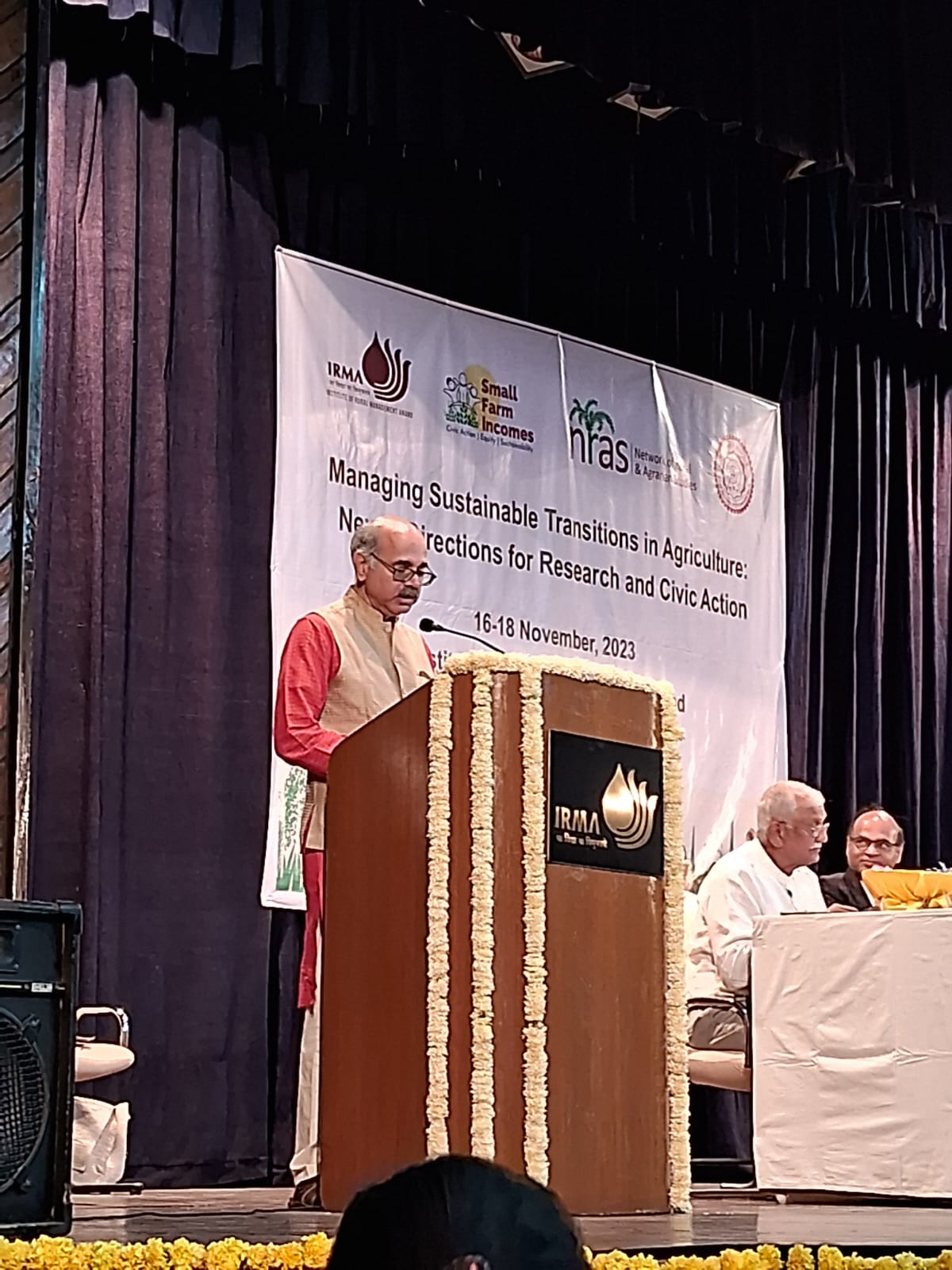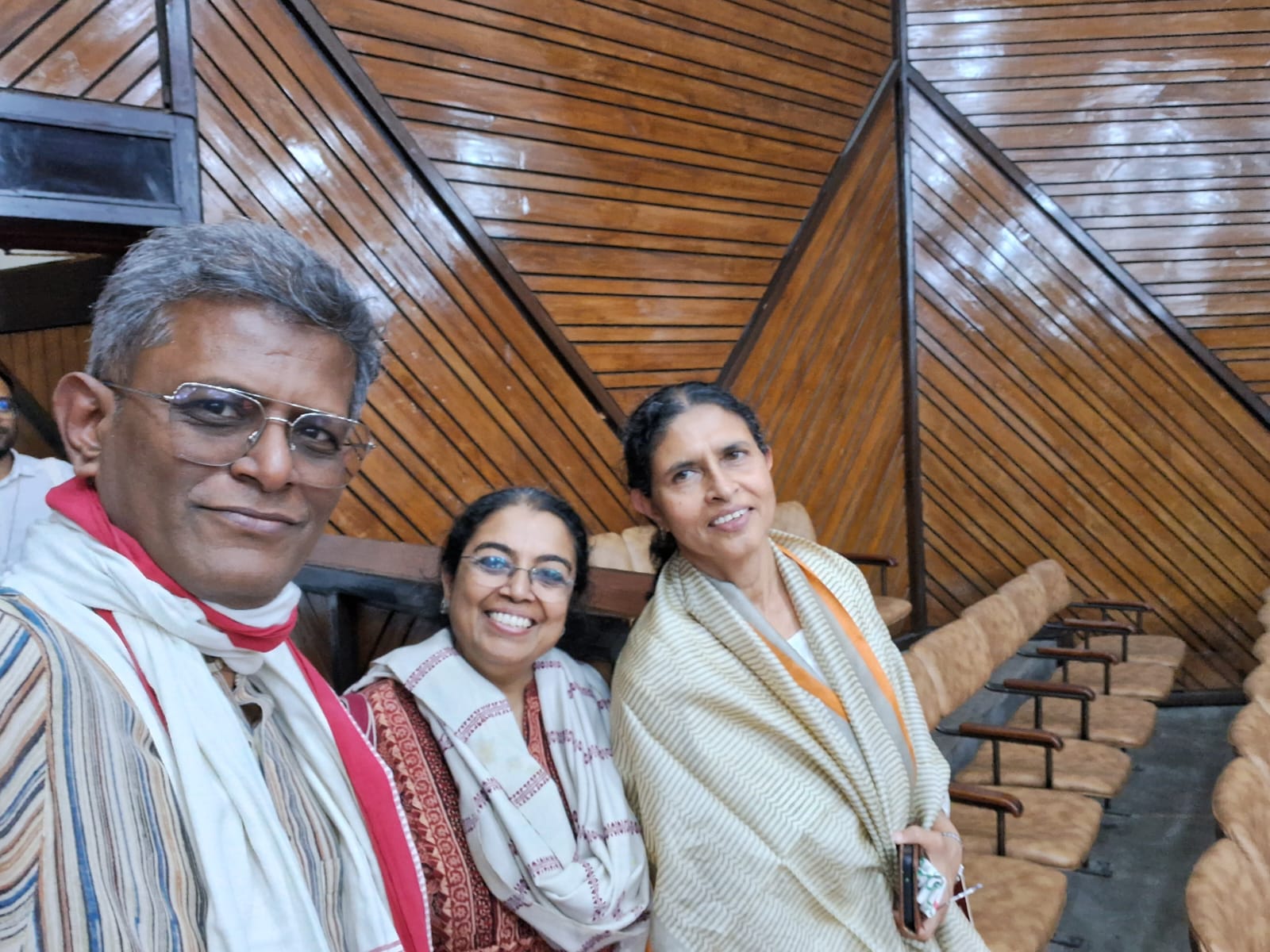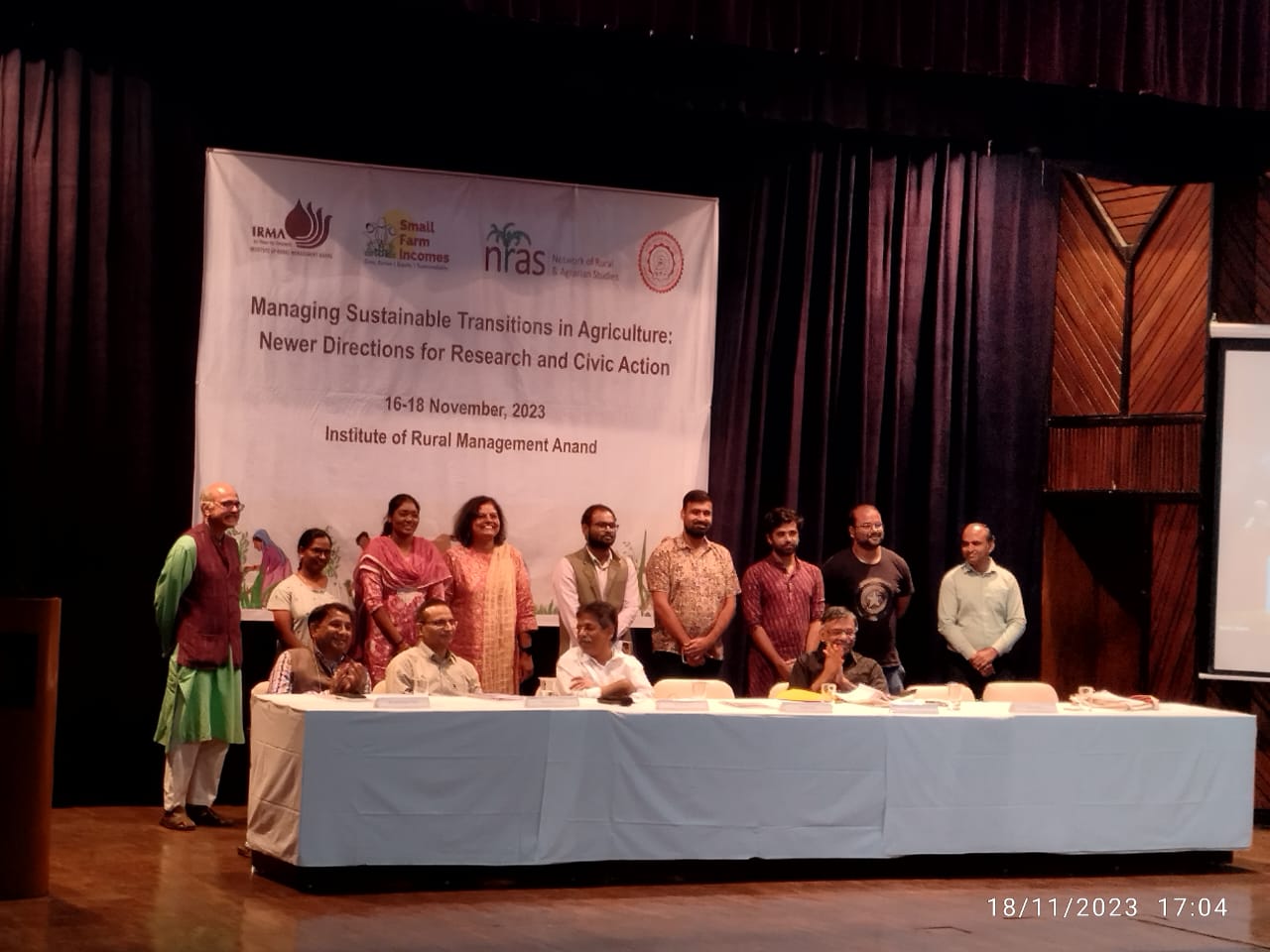Notes from the National Conference on Defining Future Pathways for AgroEcology Research at the National Level in India
16 – 18 Nov 2023, IRMA, Gujarat
Reflection
When I initially agreed to participate in this Conference and even write a paper for the same, I was still in my US tour where I could quickly put together an Abstract of an idea over couple of mails with my two co-authors, the busy schedule after my return ensured that I could not really spend time to develop the paper, the strange monsoon viral fever followed by a dental surgery meant I was uncertain about my contribution and could not complete the paper. However an opportunity to meet up with a lot of practitioners of the AgroEcologial movement across India was way too tempting to miss and I went ahead to IRMA to attend this Conference with a bag of painkillers. It was extremely insightful and enriching. It proved to be one of the best academic conferences in India that I have ever attended.



Summary:
- Climate Change, growing cost of Inputs, and, a potential global leadership has provided AgroEcology a strategic possibility to be developed into a major area of intervention.
- The agriculture department and university system is still in a denial mode and is least equipped to handle the changed scenario.
- Sustaining the vast agriculture and agriculture education superstructure that subscribes to outdated (an entire session referred to the ‘’absurdities’’ of the sector) ideas and irrelevant priorities.
- Technology dominated agro-solution enabling ecosystem is creating more problems than solutions.
- The AgroEcology space seems to be more driven by the Social Scientists, there is dearth of involvement / engagement with Economists, and Scientists.
- Scale obsessive and short-term outcome demanding funding and project priorities are not helpful for AgroEcological interventions and research, often these are made by (flawed and inequality growing) market system oriented entities.
- While isolated cases exist across the country of systemized and impactful AgroEcological programmes, they do not translate into policy inputs; inadequate studies, theorizing and reports are the reason for the same. Often Farmer Collectives and Grassroot CSOs with scare resources are pushed to doing these as well.
- New frameworks, benchmarks and policies and programmes need to be developed, if India were to go this path of AgroEcological future.
- Simple scientific interventions and process corrections can have major impact in overall Agriculture.
- Our current ways of calculating the Carbon Sequestering are flawed, if properly calculated can prove that Indian agriculture is a nett sequestering and can fetch in the global market substantial amount of current Indian budget as returns.
This is a quick summary, I have detailed notes that I will share in the next days with additional references and sources. The Conference itself resulted in agreeing to set-up a network of AgroEcology organizations and a parallel session during the Conference ended up with some shared responsibility in trying to resolve the long pending challenge of defining some basic definitions for Natural / Organic / Non-Chemical, etc., farming for Indian conditions.
Add new comment